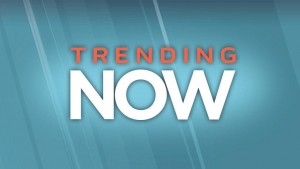 This was the theme of the National Church Leadership Institute that I attended this past week on the Andover Newton Theological School campus. Over three hundred activist, self-described “just and generous” Christians gathered for four days to hear inspiring speakers, soul-rocking music, a host of workshops and lively discussions. I was so thrilled to look out and see a room full of 20-30 somethings of many cultures, races, and sexual identities. For once it wasn’t a room of gray haired, near retirement pastors, but the next generation of church leaders.
This was the theme of the National Church Leadership Institute that I attended this past week on the Andover Newton Theological School campus. Over three hundred activist, self-described “just and generous” Christians gathered for four days to hear inspiring speakers, soul-rocking music, a host of workshops and lively discussions. I was so thrilled to look out and see a room full of 20-30 somethings of many cultures, races, and sexual identities. For once it wasn’t a room of gray haired, near retirement pastors, but the next generation of church leaders.
There were five trendlines that we looked at that the Church must engage and use creatively to be the Church of the 21st century:
- The Cloud—is a buzzword that vaguely suggests the promise and convenience of being able to access our email, photos, movies and all kinds of computer data from anywhere. Millions of virtual communities are found on the Cloud.
- Crowdsourcing—is the process of getting work or funding, usually online, from a crowd of people. The word is a combination of the words ‘crowd’ and ‘out-sourcing’. The most famous example of crowdsourcing is Wikipedia. Instead of creating an encyclopedia on their own Wikipedia gave a crowd the ability to create the information on their own.
- DIY—Short for “Do It Yourself”, which is a phrase used when a person makes something themselves rather than buying it pre-assembled or relying on a consultant or expert. The punk rock movement began this way when teenaged kids couldn’t break into the commercial music business so they did it themselves.
- Shared economy—is simply sharing what someone has in excess and another has a need for. Examples are craigslist, Air B&B, Uber and Hulu.
- Local movement—is an effort which aims to link local growers of food with consumers. Farmers’ markets are a good example of this. It’s a way of keeping goods and services local to build community, healthier eating and protecting the environment.
Dianna Butler Bass, one of the leading thinkers and writers about American Christianity today, took up these themes. She began by reminding us that if all we look at are the headlines—the rise of ISIS, racial injustice, income equality, and the persecution of Christians around the world—we will despair. Many of the headlines today were the same ones we saw ten years ago, only variations on a theme.
Historically these headlines have brought liberal Protestant churches into the streets.
But, she said, when the children at Sandy Hook Elementary School were murdered mercilessly by a crazed killer, we stopped in our tracks. The question that begged to be answered was, “Where is God?” In a post-H bomb, Holocaust, the 2004 Indian Ocean Tsunami, and Sandy Hook world—believers, non-believers and skeptics are asking that question.
In the past, our forebears would have asked, “Why did God let this happen? What are we to do?” They knew where God was—theirs was largely a transcendent God. Butler Bass challenged us to recover a public theology of engaging that question even as we do our justice and mercy work. Liberal Protestantism is the tradition that didn’t say “no” to God and Science, that didn’t say “no” to God and history, that didn’t say “no” to God and the world. (I don’t think we need to pit a transcendent, holy God and an imminent, personal God against one another. Both are found in scripture without tension and we need both attributes to have a right understanding and experience of God.)
So, if people are asking, “Where is God?” then where are we with the answer? By demonstrating that the world is the sacred stage of the Divine. Butler Bass then began riffing on the five trends by putting a theological spin on them.
We are DIYing the Kingdom of God (with the proviso that we don’t do it ourselves, but in community and by the power of God.)
Crowdsourcing: A new way to talk about the “priesthood of all believers.”
Local Movement: The ultimate in local movement was the Incarnation: God came and dwelt among us. God is a local God, not a distant one.
The Cloud: God doesn’t have to be far away for God to be mysterious. Clouds hang on the horizons. The cloud in scripture is often a symbol of the Divine presence.
If you can’t find anything on the Shared Economy in the book of Acts, you probably need to re-read your Bible.
Butler Bass says that one of the dominant emotions she feels when speaking to mainline churches around the country is “fear;” fear to engage the world, fear to engage the trends, and fear to engage to new and unfamiliar. “There are more people in mainline congregations that are afraid of Air BnB and the Cloud than they are of racial injustice,” she said.
But she concluded with this charge: “We are people who refuse to despair in the face of bad headlines. They are a call to be God’s people in the world.” The by-line of the Center for Progressive Renewal, the sponsoring organization of the conference, puts it equally as well: “We believe your church’s best days are ahead of you.” Do you?

